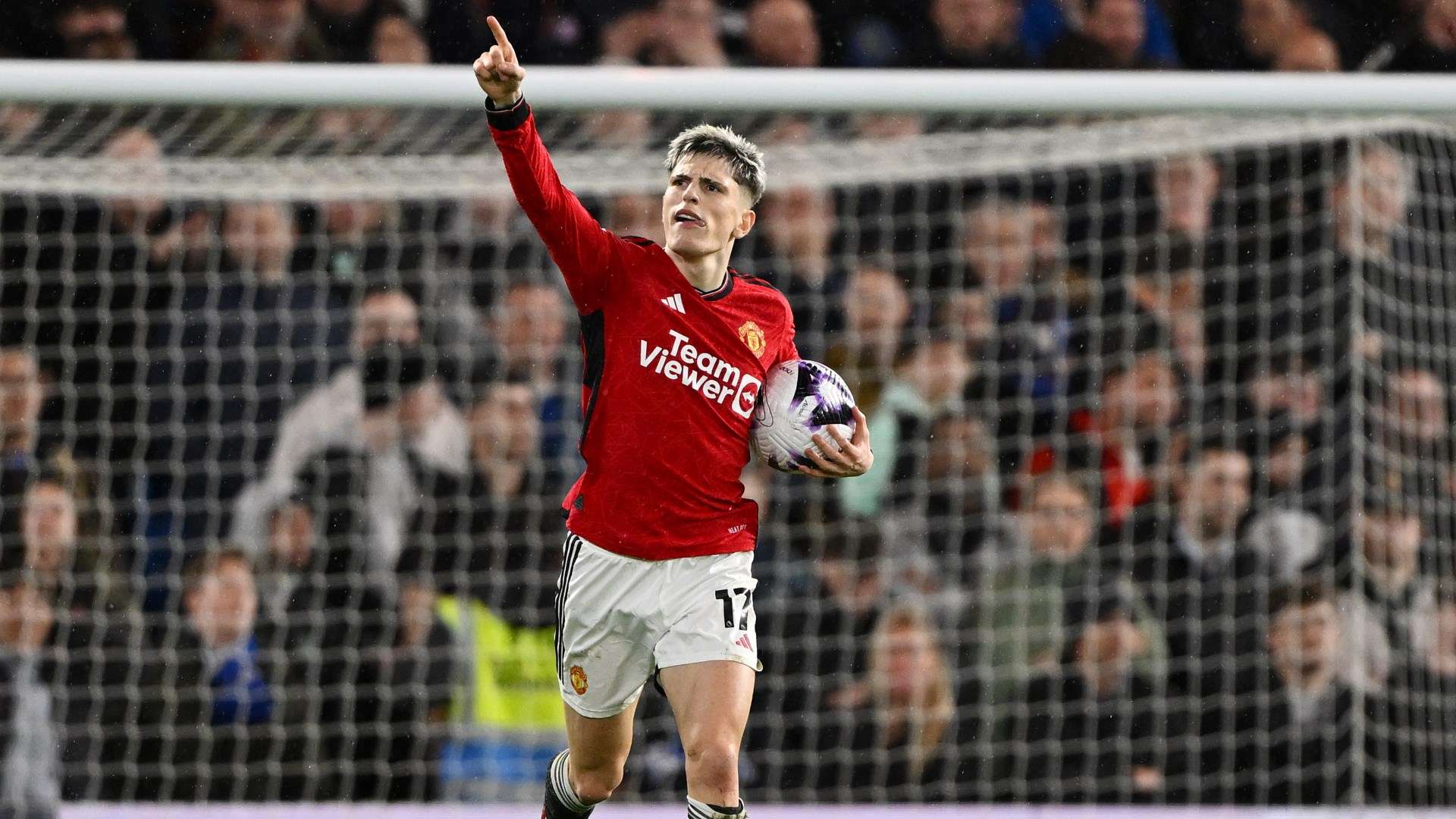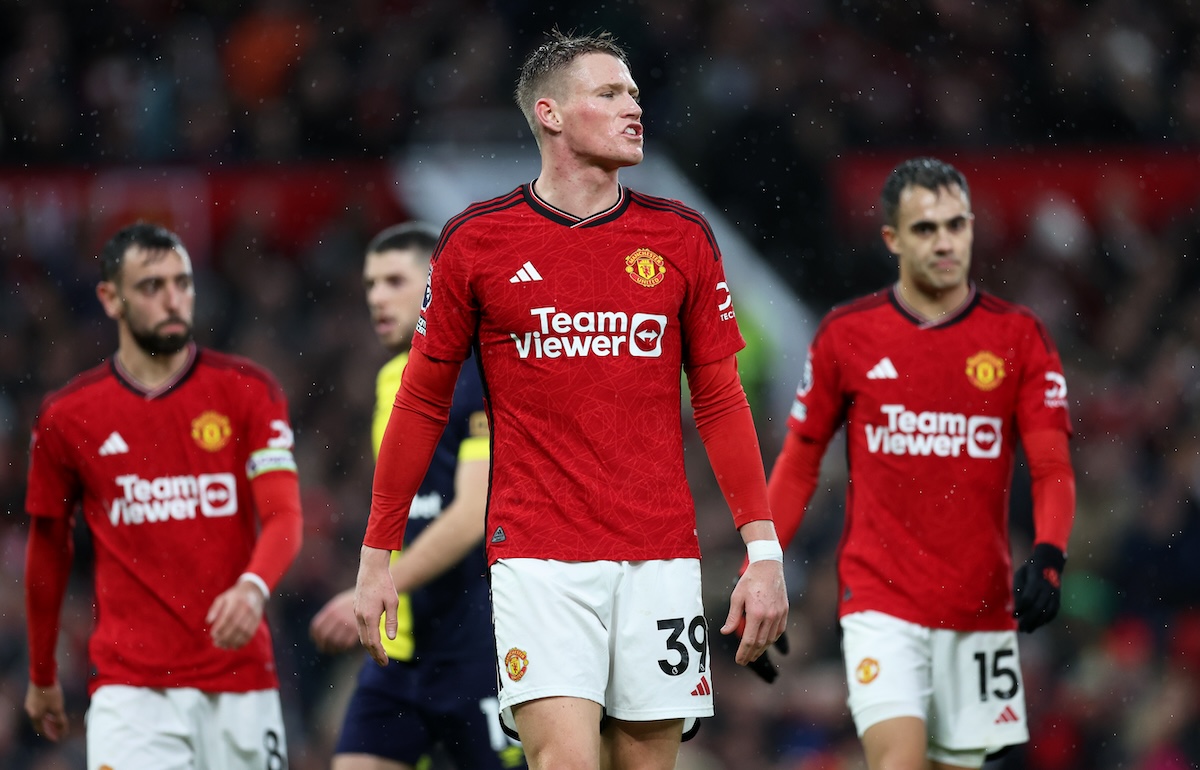Man Utd may be entertaining, but they're going nowhere
Manchester United's matches under Erik ten Hag undoubtedly provide entertainment, but their high-octane, unpredictable style may not be sustainable for long-term success. While neutrals may relish the drama, the recent heart-wrenching defeat to Chelsea exemplifies the potential pitfalls of such an approach.
In Mauricio Pochettino's jubilant celebration after Cole Palmer's dramatic winner, one could almost hear echoes of Maximus's famous line from Gladiator: "Are you not entertained?" Indeed, the match was a rollercoaster of emotions, offering more thrills in the first 45 minutes than many other Premier League fixtures combined.
Both teams seemed to disregard the basics of defending and midfield control, opting instead for relentless attacking. This approach may resonate with United fans who often clamor for an all-out offensive strategy, but it also exposes vulnerabilities, as seen in their recent defeat.
As thrilling as it might have been for neutral observers (and undoubtedly for Chelsea fans in the final moments), the chaotic style of football exhibited by Manchester United is fundamentally unsustainable. While they narrowly escaped consequences in matches like the recent ones against Brentford and Chelsea, ultimately, they reaped what they sowed.
Guaranteed drama
Manchester United has arguably been the most captivating team to watch worldwide this season. Their early departure from the Champions League wasn't just a disappointment for their own fans but also for neutral spectators across Europe who had been treated to a series of exhilarating matches. In these encounters, United participated in five epic clashes, scoring 12 goals while conceding 14. Their matches against Bayern Munich and Copenhagen, which ended in 4-3 defeats, as well as their encounters with Galatasaray where they squandered leads, showcased the unpredictable nature of United's play. Even their narrow 1-0 victory over Copenhagen was filled with drama, featuring a last-minute penalty save.
Their matches against Bayern Munich and Copenhagen, which ended in 4-3 defeats, as well as their encounters with Galatasaray where they squandered leads, showcased the unpredictable nature of United's play. Even their narrow 1-0 victory over Copenhagen was filled with drama, featuring a last-minute penalty save.
As other last-16 ties lacked excitement, many neutrals found themselves yearning for the unpredictability and thrilling narratives that United consistently delivers. Fortunately for English football enthusiasts, the chaos has continued in domestic competitions, highlighted by their thrilling 4-3 wins over Wolves and Liverpool.
Despite the 1-1 draw against Brentford, the match was far from dull. Brentford's 31 shots and 85 touches in United's box, the highest by any team this season, underscored the intensity and excitement that United's matches bring.
No one takes responsibility
 While thrilling football seems ingrained in Manchester United's history, it's important to acknowledge that the epic plot twists synonymous with the Sir Alex Ferguson era were relatively rare occurrences. Late winners often came after grinding matches where United wore down opponents before striking late.
While thrilling football seems ingrained in Manchester United's history, it's important to acknowledge that the epic plot twists synonymous with the Sir Alex Ferguson era were relatively rare occurrences. Late winners often came after grinding matches where United wore down opponents before striking late.
In contrast, Thursday's match was played at a relentless pace, leaving players utterly exhausted by the end. This exhaustion likely contributed to lapses in basic defensive responsibilities, such as failing to mark Cole Palmer during a crucial corner. Despite Palmer's obvious threat, four players failed to take action, highlighting a lack of awareness and responsibility.
Rio Ferdinand, commenting on the match, noted the failure to address Palmer's presence in the box late in the game. The youthful and often inexperienced United squad struggles to effectively manage games, with a notable absence of individual responsibility. While Bruno Fernandes is vocal on the pitch, his directives seem to go unheeded, leading to repeated mistakes like the failure to mark Palmer.
No game management
One of the primary criticisms leveled against Manchester United this season is their inability to effectively manage games, a point highlighted by a concerning statistic: under Erik ten Hag's leadership, they've conceded 27 goals within 10 minutes of either scoring or conceding. Essentially, they often undermine their own momentum or worsen their situation shortly after pivotal moments.
This pattern was evident in several matches, such as against Brentford, where Mason Mount's goal was swiftly followed by Kristoffer Ajer's equalizer. A similar scenario unfolded against Chelsea, with Palmer scoring twice in quick succession.
The trend continued in their FA Cup victory against Liverpool, where they allowed goals from Alexis Mac Allister and Mohamed Salah in rapid succession just before halftime. At Molineux, they squandered a 3-1 lead by conceding in the 85th and 95th minutes.
While United managed to secure victories in some of these matches through late heroics, such as goals from Kobbie Mainoo and Amad Diallo, the broader pattern highlights the unsustainability of their style of play.
Ten Hag blames individual errors
 Despite widespread recognition of Manchester United's tactical shortcomings and their inconsistent results, Erik ten Hag remains steadfast in his beliefs. While understandably frustrated by recent late collapses costing crucial points, he attributes these setbacks to individual errors rather than systemic issues.
Despite widespread recognition of Manchester United's tactical shortcomings and their inconsistent results, Erik ten Hag remains steadfast in his beliefs. While understandably frustrated by recent late collapses costing crucial points, he attributes these setbacks to individual errors rather than systemic issues.
Speaking at a press conference, Ten Hag emphasized the need for players to fulfill their roles effectively and make better decisions, particularly in managing games during stoppage time. He acknowledged the team's failure to react promptly and make appropriate decisions, leading to costly mistakes.
According to Ten Hag, the players should already possess the necessary skills and knowledge to handle such situations, given the club's stature. He expressed disappointment in dropping points over a short span of time, deeming it unacceptable to squander games they should have won.
In essence, while acknowledging the need for improvement, Ten Hag maintains confidence in the team's abilities but emphasizes the importance of individual accountability and learning from mistakes.
Carragher was right
Would any team be comfortable adopting Manchester United's anarchic style of play, which seemingly encourages opponents to bombard them with shots? United have allowed more than 20 shots in five of their last six league matches, with the numbers worsening over time. Even struggling teams like Everton managed to register 23 attempts against them.
Despite mounting criticism regarding their defensive vulnerabilities, Erik ten Hag has consistently downplayed concerns about the number of shots conceded. He argues that the quality of the shots against United tends to be low and points to their relatively solid defensive record before the Chelsea defeat as evidence.
Ten Hag has also brushed off detailed analysis of his team's playing style, particularly critiques from pundits like Jamie Carragher. Carragher had expressed astonishment at United's defensive approach, suggesting it was unlike anything he had seen before and seemingly contradictory. However, Ten Hag dismissed Carragher's observations as subjective, likely influenced by his past affiliation with Liverpool.
Although United fans celebrated their victory over Liverpool as a potential turning point, the chaotic nature of that match only seemed to reinforce Carragher's criticisms. Instead of marking a new era of success, the win appeared to be another fleeting moment of hope amidst ongoing struggles.
Too many great escapes
Liverpool has a history of navigating through dramatic situations, such as falling behind against Brighton and conceding late against Sheffield United, yet still managing to secure wins, which often feel more like inevitable outcomes than desperate escapes.
This highlights a key issue for Manchester United: while they've suffered numerous late concessions and dropped points, they've also capitalized on late opportunities to secure victories. Five of their 15 league wins this season have been clinched with goals in the final 10 minutes, including three in stoppage time against Brentford, Fulham, and Wolves. Additionally, they've managed to overturn deficits to win against Aston Villa and Nottingham Forest.
However, these late wins are offset by last-minute defeats, leading Erik ten Hag to set an unfortunate record as the first United manager to oversee 12 Premier League losses in a single season, surpassing David Moyes. Despite this, there's uncertainty about Ten Hag's future at the club.
Reports suggest that INEOS, the club's owners, may prefer to maintain managerial stability amidst other significant changes at the boardroom level. Ideally, they would like to provide Ten Hag with another opportunity, possibly with a more structured support system in place above him.




































